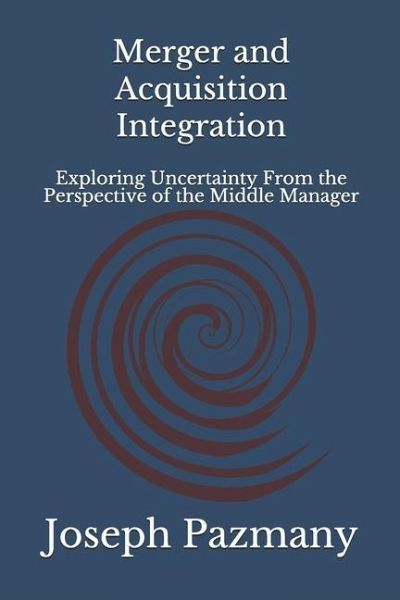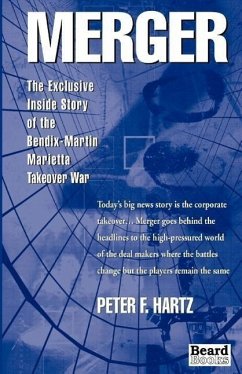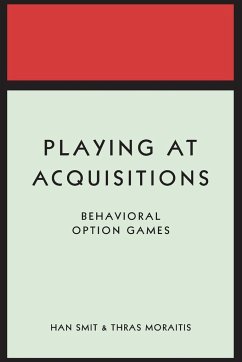
Merger and Acquisition Integration: Exploring Uncertainty From the Perspective of the Middle Manager
Versandkostenfrei!
Versandfertig in über 4 Wochen
13,99 €
inkl. MwSt.

PAYBACK Punkte
7 °P sammeln!
Most organizations are not managing M&A integration processes well. This poor management of M&A activity yields 40-80% failure rate with significant value being lost during the integration process of bringing two organizations together. This does not need to be the case since organizations can utilize a variety of tangible actions that can be taken to stem the loss of value and increase their capabilities during these times of major organizational change.The purpose of this qualitative study was to explore middle managers' perceptions about how organizations managed job-related, structural, an...
Most organizations are not managing M&A integration processes well. This poor management of M&A activity yields 40-80% failure rate with significant value being lost during the integration process of bringing two organizations together. This does not need to be the case since organizations can utilize a variety of tangible actions that can be taken to stem the loss of value and increase their capabilities during these times of major organizational change.The purpose of this qualitative study was to explore middle managers' perceptions about how organizations managed job-related, structural, and strategic uncertainty during a merger and acquisition (M&A) integration process. Furthermore, this research investigated what strategies middle managers perceived effective and ineffective for managing uncertainty and recommendations for managing uncertainty during future integrations. Overall, participants perceived strategic uncertainty was managed well, structural uncertainty was managed poorly, and job-related uncertainty was mixed. Effective strategies for managing job-related uncertainty focused on communication, whereas effective strategies for managing strategic and structural uncertainty included clear visions, defined roles and responsibilities, and opportunities to collaborate. Recommendations for managing all types of uncertainty were related to communicating, planning, interacting as a team, and valuing employees. Companies need to adequately manage information from the onset of the M&A until full integration is achieved to avoid adverse effects and reduce uncertainty. Communication through in-person roadshows, websites, and newsletters helped employees gain a better understanding of why the change was occurring, which reduced uncertainty. Organizations could better use middle managers during M&A processes to create structure, build trust, disseminate information, and reduce uncertainty, which could lead to a more successful integration process. The success of an M&A often pivots on the integration process. During an M&A, executives need to establish the direction for the integration process and prioritize intentional communication. A dedicated integration team should be appointed to develop a comprehensive integration plan, implement the plan, and monitor the integration process to ensure appropriate course corrections. Middle managers should be given additional training to best support the M&A integration process.












